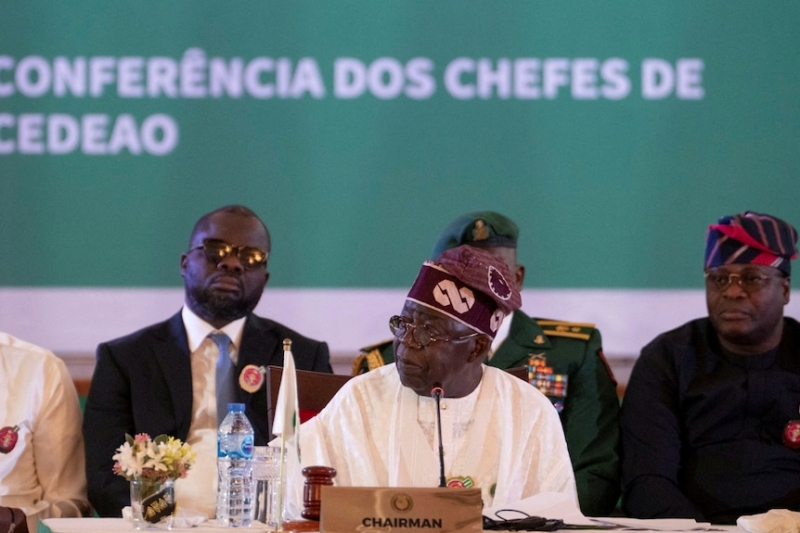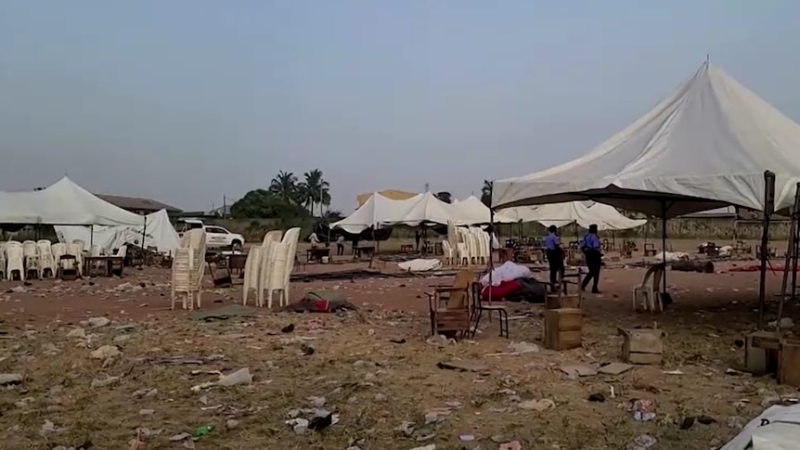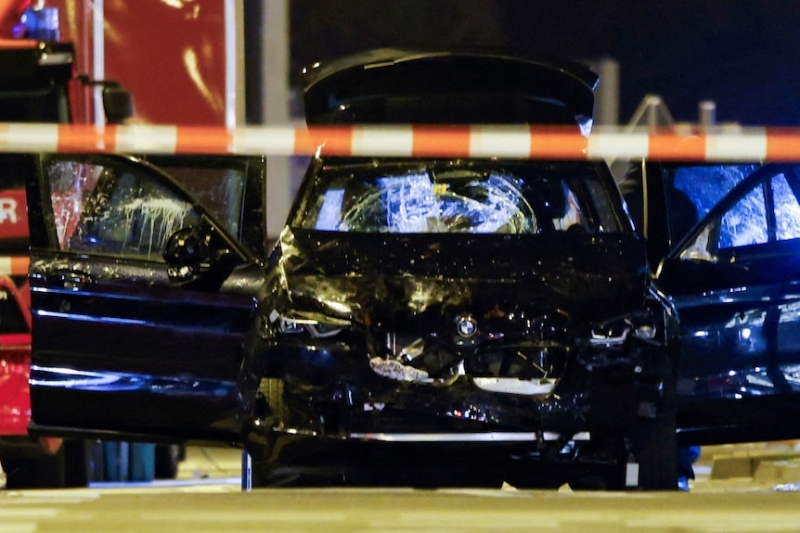The stampedes have all occured during Nigeria's worst cost-of-living crisis in decades. (TVC News via Reuters)
In short:
Two crowd stampedes, one in the capital Abuja and another in the southern town of Okija, have killed "many" people in Nigeria, days after a similar tragedy.
This week alone has seen at least 48 people die during crowd stampedes in Nigeria.
Africa's most populous country faces its worst cost-of-living crisis in decades, with Amnesty International Nigeria saying "having ordinary rice at home is turning into a luxury" for Nigerians.
At least 48 people have died this week in Nigeria in crowd stampedes as the country's cost-of-living crisis continues.
At least 13 people, including four children, were killed in two separate stampedes on Saturday as large crowds gathered to collect food and clothing items distributed at annual Christmas events, police said.
The two accidents came days after another stampede in Nigeria that killed 35 at a school fair in south-western city Ibadan.
All of the incidents involved the distribution of food at charity events ahead of Christmas.
President Bola Tinubu offered his condolences to the victims but said "operational lapses" from charitable organisations were in part to blame for the accidents.
"In a season of joy and celebration, we grieve with fellow citizens mourning the painful losses of their loved ones," he said.
Abuja stampede kills 10
Ten people were killed at the Holy Trinity Catholic Church in Maitama, in the state capital Abuja, police spokesman Josephine Adeh said in a statement.
"This unfortunate event, which took place around 6:30am, resulted in a stampede that claimed the lives of 10 individuals, including four children, and left eight others with varying degrees of injuries," she said.
She added more than 1,000 people were evacuated from the church that was due to be handing out Christmas gifts in a scheduled event.
There was a crowd surge at one of the church gates, as dozens tried to enter the premises at around 6:30am local time, hours before the gift items were to be shared, witnesses said.
“The way they were rushing to enter, some people were falling and some of them were old,” witness Loveth Inyang said.

Nigeria's President Bola Tinubu offered his condolences to the victims. (Reuters: Marvellous Durowaiye/File Photo)
Okija stampede toll unclear
At least three people were killed in a stampede in Okija in Anambra state, south-eastern Nigeria.
State police said three people were confirmed dead through eyewitnesses, however Amnesty International Nigeria put the death toll at 20 with more injured.
In both incidents, the victims were mostly women and children who were trampled as crowds tried to reach the provisions being offered.
The stampede occured during food distribution at a community centre, as people handed out rice, said Ngozi Echeazu, an official with the National Emergency Management Agency in the south.
Ibadan stampede kills dozens
A total of 35 children were killed in a stampede at a school funfair in the south-western Nigerian city of Ibadan earlier this week, police said.
A local foundation organised the funfair to distribute gift items and food to kids in the region.
State Governor Seyi Makinde said the stampede "led to multiple loss of lives and injuries".
"This is a very sad day,” he said.
Following the incident, police arrested eight people with "various involvements" in organising the event, police spokesperson Adewale Osifeso said in a statement.
Among those detained was the main sponsor of the event at the Basorun Islamic High School, which was organised by the Wings Foundation and Agidigbo FM radio.
The Homicide Section of the State Criminal Investigation Department has opened a probe, Osifeso added.
Cost-of-living crisis hurts Nigerians
Africa's most populous country faces its worst cost-of-living crisis in decades under President Bola Tinubu.
Amnesty International Nigeria in a statement on Saturday said that for many Nigerians "having ordinary rice at home is turning into a luxury".
The current economic hardship under Mr Tinubu is blamed on surging inflation that is at a 28-year high and the government’s economic policies that have pushed the local currency to record low against the dollar.
Frustration over the cost-of-living crisis has led to mass protests in recent months.
Mr Tinubu promised “renewed hope” when he was sworn into office in May 2023.
Inflation in November rose to 34.6 per cent in annual terms in October, marking a third consecutive monthly rise.
Wires





